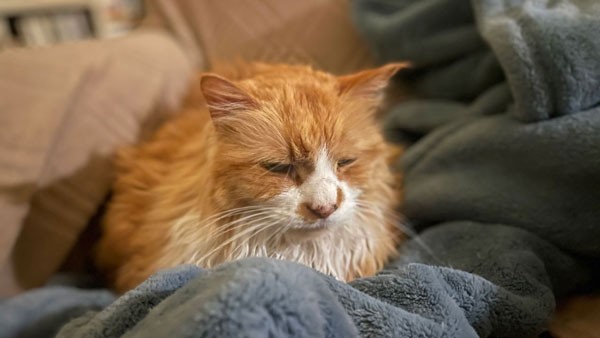News directly from Cornell's colleges and centers
Minimally invasive surgery helps cat with early pancreatic cancer
By Melanie Greaver Cordova
With four cats and three dogs, the Collins household is a boisterous place. When one member of the family, a 16-year-old feline named Quinoa, became lethargic and dull, his owner Dr. Brian Collins immediately knew something was amiss with the domestic longhaired cat.
“Something didn’t seem right. He was still eating, but his pattern of eating and his tastes had changed,” said Collins, who is a senior extension associate at the Cornell Margaret and Richard Riney Canine Health Center. He describes Quinoa as a playful cat that loves his food almost as much as he loves relaxing with his family — so Collins was concerned when he noticed Quinoa was no longer eating his treats in one sitting.
A Cornell veterinarian himself, Collins knew that Quinoa would receive the best care from his colleagues at the Cornell University Hospital for Animals. He brought Quinoa to the hospital in early January, where an abdominal ultrasound revealed, among other things, at least one nodule on his pancreas. After examination and testing, Quinoa was diagnosed with exocrine pancreatic carcinoma, a rare disease responsible for less than half a percent of cancers in dogs and cats.
Read the full story on the College of Veterinary Medicine website.
Media Contact
Get Cornell news delivered right to your inbox.
Subscribe

